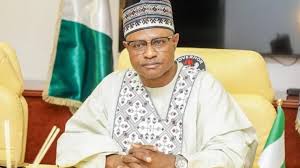
Governor Uba Sani of Kaduna State has said that poverty and economic exclusion are the root causes of insecurity in the Northern part of the country.
In an interview with Channels TV on Sunday, May 18, Uba said that unless the economic crisis in the region is tackled, the region will continue to face unrest.
Uba who was a former chairman of the Senate Committee on Banking.
“This problem of insecurity, I can tell you, is largely an economic issue — poverty, unemployment. That is the reason why our people can easily be recruited by these bandits. Today, we are addressing the problem gradually. Two months ago, I sat down with the Vice President of the World Bank. We looked at the UNICEF statistics. I can tell you — out of the 18.2 million out-of-school children today, the North is responsible for about 70% of that number. There are improvements in taking out-of-school children; the figure is different, and we are addressing the problem gradually,” he said.
The governor warned, however, that solving the crisis would require long-term commitment and realistic expectations. He reflected on years of policy neglect; Sani admitted the region failed to tackle the crisis earlier.
“Things are getting better, but nobody can tell you we can address this problem even in the next ten years — and I will tell you why. Because I’m a very realistic person. This problem didn’t start two years ago. It started many years back because we were docile. We did not approach the issue holistically. We had the opportunity to push in the past — but we didn’t do it.
The North needs to sit down and face this reality if we want to bring back the glory of our zone. But I am happy that everyone, from the ministers to the senators, House of Representatives members, and governors, we are all on the same page for the first time.
We cannot win insecurity through a kinetic approach, nor through giving people palliatives. We must look at the drivers and symptoms. We have to address the gap in terms of economic prosperity between our people in urban areas and those in rural communities” he said



